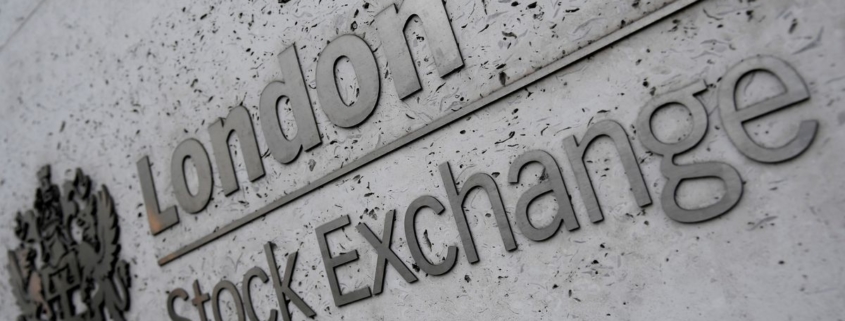Burberry, commodity stocks drag FTSE 100 to over 5-week low; inflation worries linger
The London Stock Exchange Group offices are seen in the City of London, Britain, December 29, 2017. REUTERS/Toby Melville
London’s FTSE 100 fell on Thursday, dragged down by heavyweight commodity stocks and Burberry Group after an underwhelming earnings update, while fears of a spike in inflation as the economy recovers hurt demand for equities.
The blue-chip index (.FTSE) slipped 2.3% to its lowest level since April 7. Luxury brand Burberry (BRBY.L) tumbled 7.7% to the bottom of the index after it reported lower annual sales, hit by store closures and reduced tourism due to the pandemic. read more
Oil majors BP (BP.L) and Royal Dutch Shell (RDSa.L), and miners (.FTNMX551020) were among the biggest drag, tracking falls in crude and commodity prices.
The domestically focussed mid-cap FTSE 250 index (.FTMC) declined 1.5%.
Globally, stocks slipped after a shocking rise in U.S. inflation bludgeoned Wall Street and sent bond yields surging on worries the Federal Reserve might have to move early on tightening.
“Inflation has really returned with a vengeance this week as a key concern for investors… and now, the market finds itself in a bit of a panic,” said Connor Campbell, a financial analyst at Spreadex.
“There is probably feels of choppiness to be found, and I don’t know whether the market falls back to an acceptable level in the eyes of investors before they start to buy up again.”
After rising 10.9% this year by last week on reopening optimism, the FTSE 100 has pared some of those gains in the last few sessions on worries that central banks might tighten their ultra-loose monetary policies sooner than expected to curb inflation.
BT Group (BT.L), Britain’s biggest broadband and mobile provider, slid 3.8% after it reported lower earnings for the year to end-March and forecast adjusted revenue to be broadly flat this year. read more
Canadian computer chip designer Alphawave IP Group’s shares (AWE.L) tumbled 15% in their London market debut. read more
However, cyber security adviser NCC Group (NCCG.L) gained 6.5% after it proposed to buy the intellectual property management business of Iron Mountain Inc (IRM.N).
Our Standards: The Thomson Reuters Trust Principles.
